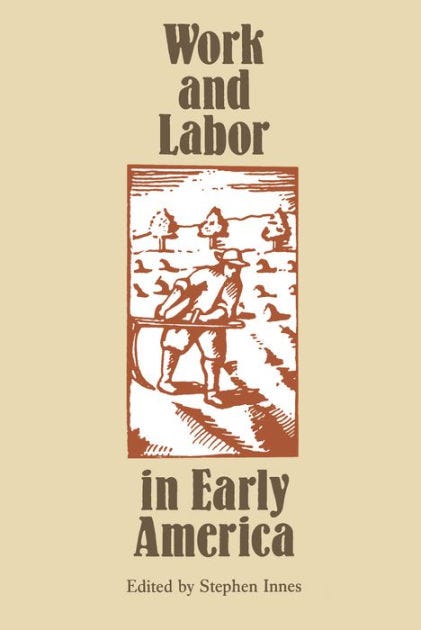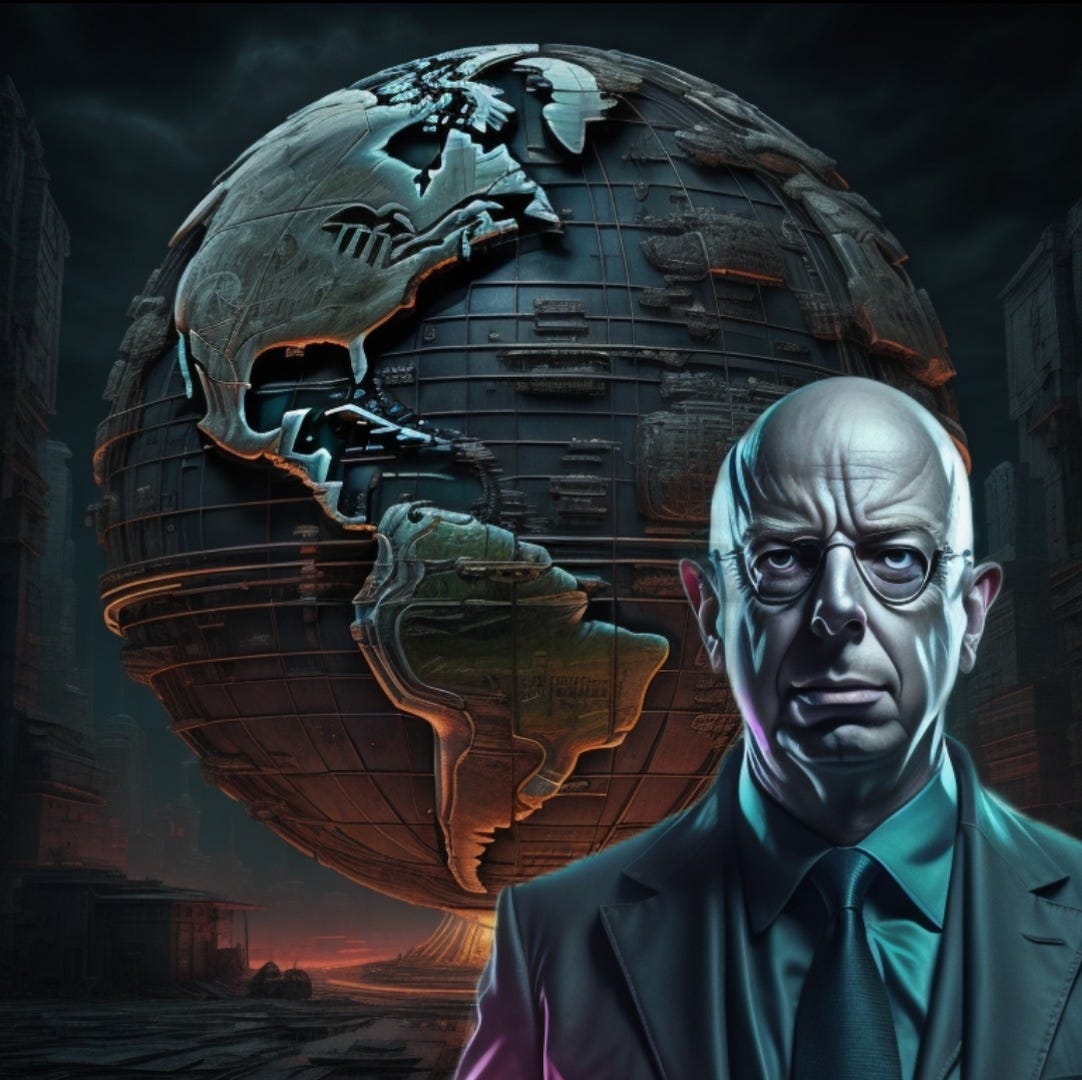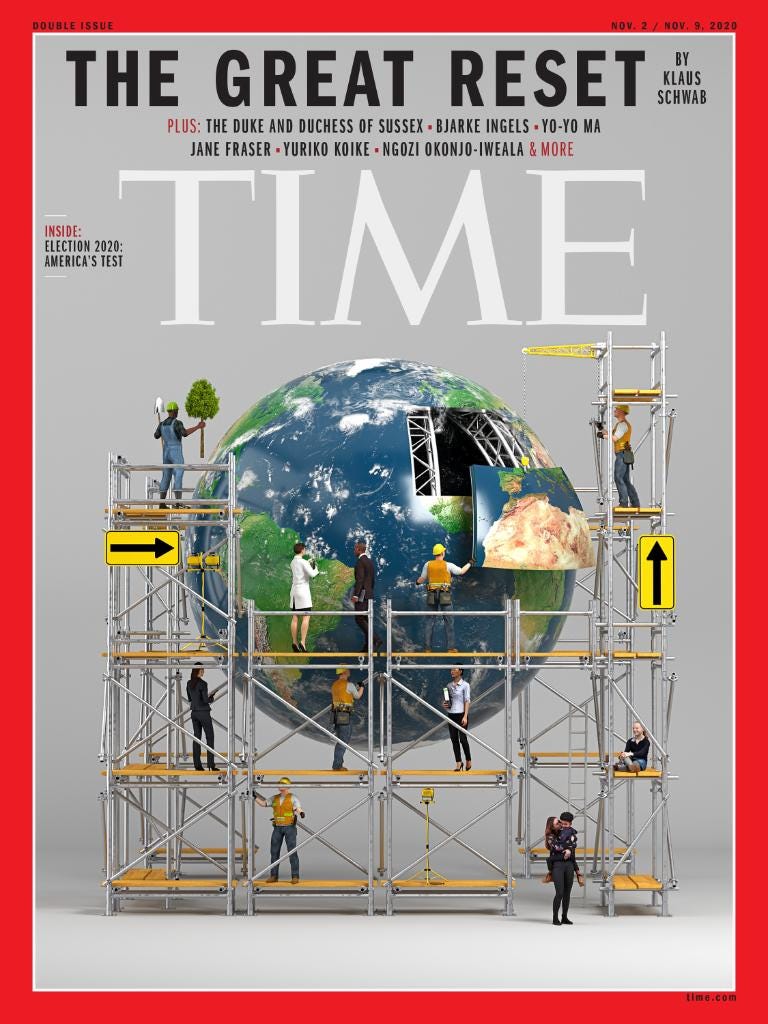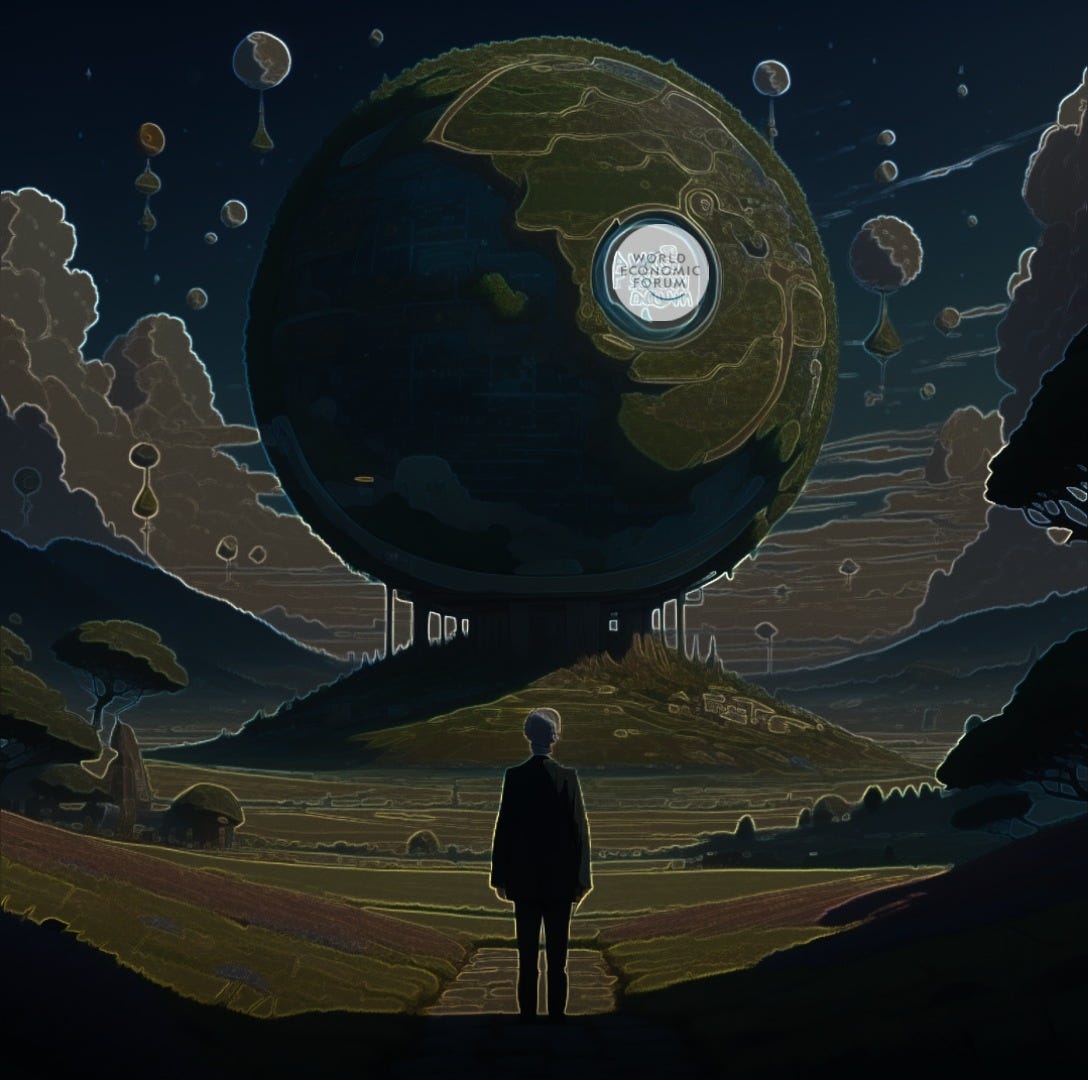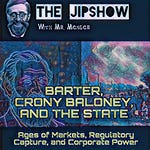Time Stamps:
(0:00) Opening
(3:07) John Smith's Vision For the New World
(7:18) The Fertile Assumption and Labor Ownership
(11:00) Unpacking The Great Reset
(17:23) It's All (Crony) Capitalism
Smith's Vision of Work, Industry, and Enterprise
When John Smith surveyed the New World, he saw that it lacked "the long labour and diligence of industrious people and Art," and that the "trilogy" of work, industry, and enterprise promised to transform it.
Smith hoped the Americas would be a haven for laborers, tradesmen, and small producers of Stuart England. Smith's passionate belief was that in the New World, "every man may be master and owner of his owne labour and land; or the greatest part in a small time."
In a similar pattern to John Smith's vision, two distinct groups of pre-Revolutionary migrants arose:
Metropolitan indentured young men from London and the home counties to Maryland, Pennsylvania, and Virginia.
Provincial families from the Scottish Highlands, West Lowland (textile centers), and Northern agricultural centers (like Yorkshire) to North Carolina and New York.
As stated by Stephen Innes, "[a]t the beginning, John Smith's linkage of control of both one's land and one's labor was an attempt to speak to the aspirations of these latter groups."
While the population increased in England, diminished returns in labor and capital investment resulted. Labor-land ratios increased, while returns for labor had fallen. John Smith recognized that in America, these ratios would be reversed.
The earliest and greatest affront to Smith's vision was the institution of slavery. It was also the greatest source of unfree labor. Other unfree workers were indentured servants, convicts, vagrants, and war captives. Smith wanted a New World where all could receive the fruits of their labor.
Privilege, Power, and Corporate Structures
Jack Trotter's Who Owns America speech at the Abbeville Institute ought to be an awakening to anyone who thinks the economy is a natural outcome of honest dealings.
I'm sure it sounds very foreign when one is stuck on the view that it's all an extension of a natural right to buy and sell, with no institutional shift between that and the corporate form.
The free association and freedom of contract argument seems to assume little difference between a corporation with state privileges (and largely artificial powers) and a natural person who would be offering a position on fairly equal terms. The power dynamics wouldn't seem to reflect the Lockean doctrine of "equality in authority." Not every outcome of the Industrial Revolution is to be embraced without some scrutiny and examination.
A contract with a power center tied to your livelihood may more properly be viewed as a captain having the responsibility for keeping his passengers alive on his ship for the alloted time they've agreed to be on it.
A worker "can" walk out on a corporate entity when he doesn't like their terms. But good luck opting out of corporate arrangements altogether.
It's just like the "leave" argument that AnCaps like to laugh at.
"Where would I go, another statist regime?"
Unpacking The Great Reset
At the World Economic Forum's 2014 annual meeting in Davos, Chairman Klaus Schwab announced the Forum's desire to "push the reset button.”
Instead of a world "caught in crisis management mode," Schwab envisioned "a much more strategic way" of approaching the "known unknowns" before them.
In 2017, the World Economic Forum expanded upon the proverbial Reset Button, publishing an article on their website, entitled “We need to reset the global operating system to achieve the SDGs. Here's how."
SDGs refer to the 17 Sustainable Development Goals of the United Nations (UN) that its member states unanimously agreed to, with its deadline set for the year 2030.
The piece characterizes the goals as "stretch targets" as it cited a study finding that "80% of the world’s countries are off track on at least one among four targets for child mortality, maternal mortality, access to water and access to sanitation. Thirty-seven countries are off track for all four."
The "stretch targets" are stretchy, indeed.
But instead of revising the Sustainable Development Goals to reflect achievable aims, the WEF's stock is in the Reset Button.
"On many social and environmental issues, trends are actually moving in the wrong direction," write the authors.
Incrementalism won’t be enough to achieve a new generation’s goals. A more fundamental re-think is required, one that can generate progress at exponential rates. We need a new operating system – an upgrade to the way modern capitalist economies are working.
But why would the UN care what a goofy man in Davos thinks of these results?
The paper is co-authored by John W. McArthur, Senior Fellow of the UN Foundation. And with all the concerns mentioned is a pat on the back to the forward-thinking of old.
The paper asserts, "the greatest successes of the past generation have come from transforming rather than adding," proposing the answer to be found in "unique blends of policies, institutions, financing and public-private cooperation."
Since June of 2019, the WEF and the UN have officially partnered to advance the UN's “2030 Agenda for Sustainable Development.”
As Michael Rectenwald explained:
The WEF promised to help “finance” the UN’s climate change agenda. The framework also commits the WEF to helping the UN “meet the needs of the Fourth Industrial Revolution,” including providing assets and expertise for “digital governance.” Agenda 2030 appears to have been tailor-made to accommodate the UN-WEF partnership. It adopts the stakeholder concept introduced by Schwab decades before. The word “stakeholders” is used no less than thirteen times in the 2030 resolution. The Great Reset, then, may be understood, in part, as the WEF’s contribution to Agenda 2030.
In a matter of months following the Covid-19 outbreak, Klaus Schwab and Thierry Malleret published Covid 19: the Great Reset.
"[T]he moment must be seized," declared the book. "For those fortunate enough to find themselves in industries ‘naturally’ resilient to the pandemic, the crisis was not only more bearable, but even a source of profitable opportunities at a time of distress for the majority.”
The distressed majority, not their priority.
Part of this "rethinking" in the vision of "stakeholder capitalism" is the adoption of the Environmental, Social and Governance (ESG) index. It is a corporate social credit scoring system that enables further collective ownership by activist central planners.
It's All (Crony) Capitalism
One major "strategic partner" of the WEF is Blackrock, Inc., the world's largest asset management firm.
In a 2022 letter entitled The Power of Capitalism, Blackrock CEO Larry Fink wrote a letter to all CEOs, embracing this model, but denying its nature as a political agenda.
"It is capitalism," Fink declares.
Fink, like Schwab, pontificates that Covid-19 changed everything. "As companies rebuild themselves coming out of the pandemic, CEOs face a profoundly different paradigm than we are used to... That world is gone."
Rectenwald advises readers to consider such statements as not only a report, but an implicit threat:
As more and more investors choose to tilt their investments towards sustainability-focused companies, the tectonic shift we are seeing will accelerate further. And because this will have such a dramatic impact on how capital is allocated, every management team and board will need to consider how this will impact their company’s stock.
The Great Reset has been described as "capitalism with Chinese characteristics," which - while a play on Maoism as "socialism with Chinese characteristics" - still aptly describes a powerful apparatus of state intervention and the social order imposed by profit-seeking corporations. Both promise more control over the population and greater economic consolidation.
External Resources:
BOOK: Work and Labor in Early America by Stephen Innes
VIDEO: Who Owns America? Populism, Political Economy, and Corporate Personality by Jack Trotter
What is the Great Reset? by Michael Rectenwald
We need to reset the global operating system to achieve the SDGs. Here's how by Homi Kharas and John W. McArthur
The Power of Capitalism by Larry Fink



